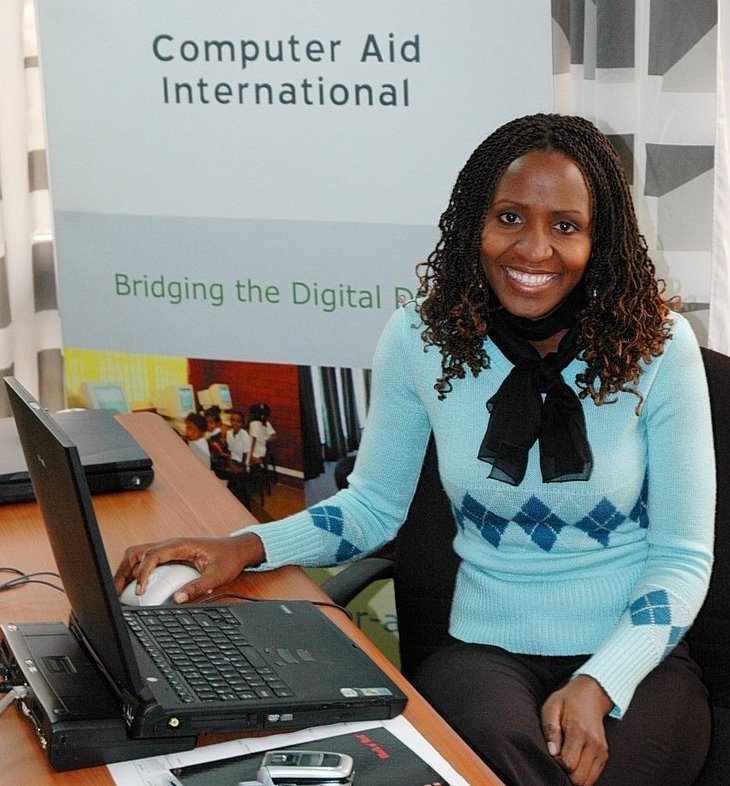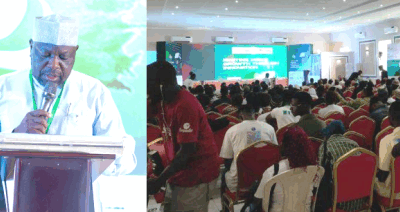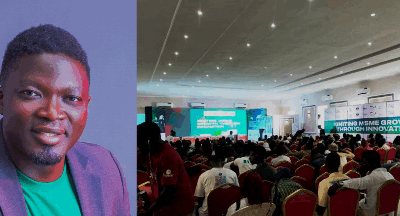At around N70,000 to N130,000, the cost of acquiring a brand new Pentium IV PC in Africa’s depressed economy equates to the cost of feeding a family of four for 12 weeks or so. Often, the choice is to survive the day and leave the option of closing the digital divide to a ‘better tomorrow’ that is unlikely to come as several World Bank reports on the state of ICT on the continent have pointedly shown. Unless Africans have access to affordable PCs, they would never be a part of the fast evolving Information Society. To help address these challenges, institutions such as the Computer Aid International (CAI) have been working on the continent as ‘interventionist forces’ by unloading refurbished PCs from the developed world costing less than N15,000 into learning institutions and organizations with relatively larger social relevance in their immediate communities. Anne Musyoki for CAI spoke with SEGUN ORUAME on why refurbished systems still have an ace in green markets where the choice is not between premium branded systems and refurbished PCs but between refurbished PCs and low cost, poor quality systems making their way into the Nigerian Market from Asia.
Computer Aid International has the reputation for building computer refurbishment capacity in excess of 65,000 PCs in about 8 years. How did you do this?
In fact, we have now sent 80,000 high quality computers to education institutions and community organizations to over 105 countries. The Computer Aid International supply team in London’s work is to speak to companies committed to development refurbish and distribute them to developing countries.
Computer Aid PCs are also the highest quality refurbished Green PCs available; how so?
Computer Aid International PCs are the highest quality refurbished PCs. In London, a team of 50 works tirelessly in testing, refurbishing, cleaning and repackaging the PCs. That is how we attain highest quality. We are the largest most experienced not for profit organization distributing PCs to developing countries.

How have you been able to assist communities without access to electricity harness solar power as a sustainable power source for Laptop PCs, which you supply?
Computer Aid International does not provide power. But we provided PCs to a number of institutions that use solar power. For example, NUST Zimbabwe and schools with VVOB in Zambia. Recently, we have engaged a fulltime researcher to expand the work in future.
How do you deal with software and computer applications issues arising from each PC that you have had to make ‘Green’ again (usable)?
Computer Aid International can provide Open Source or Microsoft OS depending on what beneficiaries’ request.
What factors determines who the recipient of your green PC initiative will be? What must they do to qualify?
Computer Aid International doesn’t have a green PC initiative. Any non-profit organization can apply for any number of PCs at www.computeraid.org. One of our objectives is to identify and work with those organizations in recipient countries able to derive maximum social value from professionally refurbished computers.
What are the ranges of specification for computers that you refurbish and supply for recipients?
Computer Aid International only distributes Pentium3, Pentium4, and equivalent. If we are donated 5% Pentium4s, then the consignment will have 5% Pentium4s, if we are donated 10% Pentium4s, then the consignment will have 10% Pentium4s. But the price is always at £39 per PC. If applicants have specific needs outside of our specifications, we have to outsource those machines at higher cost.
Ubuntu Linux open-source software (OS and Apps) can be supplied if requested. How much does this cost the recipient or is this done free of charge?
Computer Aid International is a Microsoft Scheme and can pre-install Win 2000 OS for additional $5 per PC or Linux for free of charge.
How do you deal with pre-shipment issues, since the regulations governing shipment vary from country to country? Is the entire process left with the recipient of your PC initiative to sort?
Computer Aid International has great detail of interest in countries like Ghana and Nigeria where pre-shipment inspection is a legal requirement. The law dictates that the recipient organization applies for IDF license. Computer Aid can offer advice and assistance by providing shipping invoice and gift certificates in order to expedite the process but we are prohibited by law from being the applicant.
Who are your collaborators in this venture? Are your PCs sourced mainly from UK donors?
Yes, our PCs are sourced from UK companies e.g. British Airways, Virgin, Investec, DHL, University of London etc. and we do collaborate with partner networks to distribute to their constituencies.
When you say “not for profit making” this stands to mean that yours is a charity organization? Who does the funds used for running cost?
Computer Aid International is registered as a non-profit organization in UK record registration no. 1069256.
Funding of £39 plus shipping per PC is required in order to cover the cost of supply. Recipients mobilize these funds from a wide range of funding agents, donors and trusts.
How do you grade your order or shipment? Do your engineers and Technicians offer their services free as well?
We have a mixture of paid technician supervisors as well as volunteers from universities and technical colleges.
How else do you ensure that your PC don’t add to the growing incident of ICT wastes generated by unserviceable PCs that end up in waste land or dump sites in Africa?
We remove any old, defected, low specification PCs in UK and recycle them entirely within European community. There is zero dumping and zero landfill. We select only high quality professionally refurbished pentium3 and pentium4 computers for provision to partners in Africa. These PCs last for an average of three to four years each one making possible 6000 hours of ICT enriched education or other PC access that otherwise would not have been possible.





























